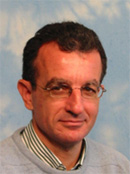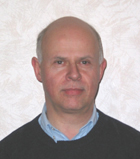Objectives
Nowadays,
power systems are operating with lower and lower security margins. This
is due to the prioritization of the electricity market deregulation,
the load consumption increase, the difficulties to build new facilities
such as transmission lines and large power plants, etc. Consequently,
the vulnerability of power systems becomes a very important issue and
the probability of large blackout tends to increase, as confirmed by
the various incidents experienced in 2003. Therefore, mastering the
knowledge of different topics related to blackout inception and power
system instability has become essential for researchers and engineers
involved in power system planning, operation and control.
The aim of this course is to focus on mechanisms of blackouts, instability
phenomena, modeling and analysis tools, preventive and curative measures,
and finally service restoration. More precisely, it will cover the following
topics.
Phenomena and instability
mechanisms
Typical system degradation scenarios (faults, protection failure, cascade
tripping of overloaded lines, instability). Instability modes (angular,
frequency, voltage). Instability mechanisms and countermeasures explained
using simple examples (P-? curves, equal area criterion, governor control,
spinning reserve, maximum load power, generator limits, P-V curves).
Description and analysis of recent experienced blackouts (lessons learnt,
needs and trends).
System-wide monitoring
Wide area monitoring and control. Information and communication technologies
(ICT) to enhance control and protection. Visualization tools. Large-scale
monitoring of operating states,…
Real-time security
assessment
Preventive assessment of security margins with respect to angle and
voltage instability. State-of-the-art analysis methods for day-ahead
and real-time security assessment. Congestion management. Examples from
real implementations. New trends.
Emergency control
System protection schemes and defence plans for curative control against
large disturbances. Design principles. Generation shedding, underfrequency
and undervoltage load shedding. Examples.
System restoration
Overview of main strategies, load pick-up, black start capabilities,
design of restoration plans, real-time considerations. Examples.
Coordinator
Prof.
Dr. Rachid Cherkaoui (rachid.cherkaoui@epfl.ch)

Rachid
Cherkaoui received the M.S. degree in electrical engineering and the
Ph.D. degree from Swiss Federal Institute of Technology (EPFL), Lausanne,
in 1983 and 1992 respectively. From 1983 to 1987, he worked at Entreprises
Electriques Fribourgeoises (Swiss electrical utility) developing a state
estimator and security analysis tools for the HV transmission system
of that company. From 1987 to 1992, he joined the power system laboratory
of EPFL where he achieved his Ph.D. thesis in the field of optimal operation
topologies for distribution systems. In this respect, he was the recipient
of the ABB Swiss Award’83. Since 1983, he is leading the research
activities in the field of optimization and simulation techniques applied
to electrical power and distribution systems. Presently his main research
topics are electricity market deregulation, distributed generation and
storage, and, power system vulnerability mitigation. He is member of
IEEE, member of technical program committees of various conferences,
member of CIGRE task forces C5-2, and IEEE Swiss Chapter officer since
2005. He serves regularly as reviewer for different journals and conferences.
Dr. Cherkaoui is the author or co-author of more than 40 scientific
publications. At EPFL, he is lecturing two Master courses respectively
on power system dynamics and on electricity market deregulation and
co-lecturing one doctoral course on transient and dynamic phenomena
in power systems. He is also Exchange Students Coordinator for the electrical
and electronic engineering school of EPFL.
Prof.
Dr. Thierry Van Cutsem (t.vancutsem@ulg.ac.be)

Thierry
Van Cutsem graduated in Electrical-Mechanical Engineering from the University
of Liège, where he obtained the Ph.D. degree in 1984 and is now
adjunct professor. Since 1980 he has been with the Belgian National
Fund for Scientific Research (FNRS), of which he is now a Research Director.
His research interests are in power system dynamics, stability, security,
simulation, optimization and real-time control. His main recent contributions
are in the field of voltage stability and security. He is closely collaborating
on these topics with several Transmission System Operators: RTE (France),
Hydro-Québec (Canada), ELIA (Belgium), HTSO (Greece) and several
industrial partners (AREVA, Suez Tractebel). He has co-authored around
120 publications as well as the book “Voltage Stability of Electric
Power Systems”, Kluwer (Springer), 1998. He has been an active
member of several IEEE and CIGRE working groups. He acts presently as
Editor for the IEEE Transactions on Power Systems. He has been in the
scientific committee of several international conferences such as PSCC,
IEEE Power Tech, etc. At the University of Liège, he teaches
courses on Electric Power Systems. He is a Fellow of the IEEE and a
recipient of the Blondel Medal from SEE (France).
Instructors
Göran
Andersson
Swiss Federal Institute of Technology (ETH)
Switzerland
Janusz
W. Bialek
University of Edinburgh
Scotland
Rachid
Cherkaoui
Swiss Federal Institute of Technology (EPF)
Switzerland
Tatjana
Kostic
ABB
Switzerland
Alberto
Borghetti
University of Bologna
Italy
Mania
Pavella
University of Liège
Belgium
Thierry
Van Cutsem
University of Liège and FNRS
Belgium
Costas
Vournas
National Technical University of Athens
Greece
Course
duration and location
Three
days, from Monday 27 to Wednesday 29 of March 2006.
Swiss Federal Institute of Technology, Lausanne, Switzerland.
Courses
Contents
Monday,
March 27
Overview
of blackout concerns and course introduction (R. Cherkaoui)
Revisiting
phenomena and instability mechanisms (T. Van Cutsem)
Review
of recent blackouts, causes and lessons learnt (J. Bialek)
Tuesday,
March 28
A comprehensive
approach to transient stability control (M. Pavella)
Assessing security
margins with respect to voltage instability (C. Vournas, T. Van Cutsem)
Wednesday,
March 29
Counteracting voltage instability (T. Van Cutsem, C. Vournas)
Wide-Area Monitoring
and Control - A Means to Avoid Blackouts in Power Systems (G. Andersson)
System restoration
and black start capabilities (A. Borghetti)
System Restoration:
Operators Perspective and Supporting Tools (T. Kostic)
Course
fees
The
course fees include lectures, documentation, coffee breaks and lunches
Members of the EES-UETP:
525 EUR
University non members of the EES-UETP: 900 EUR
Industry non members of the EES-UETP: 1500 EUR
The Course
Secretariat will send an invoice to each registered participant, after
the reception of the filled Registration Form.
Registration
form
To
register to the EES-UETP course, please download the form below, fill
it up, and mail, fax, or e-mail a copy before March 1st to:
Mrs. Andrée
Moinat
Swiss Federal Institute of Technology
STI – ISE – LRE
ELL 116 (Bâtiment ELL)
Station 11
CH-1015 Lausanne, Switzerland
Phone: +41-21-693 26 61
Fax: +41-21-693 46 62
Andree.Moinat@epfl.ch
 Download
Course Brochure and Registration form Download
Course Brochure and Registration form
Accommodation
Special Prices have
been arranged.
Please contact directly the hotel:
Agora, Av. Rond-Point
9, CH-1006 Lausanne, Switzerland
Phone: +41 21 617 12 11
Fax: +41 21 616 26 05
agora@fhotels.ch
http://www.fassbindhotels.com/
The price for a
single-room with breakfast ranges from 100 to 200 EUR. Taxes are included.
Room reservations must be made by March 1 st. Please mention “EES-UETP”.
Reservation requests after that date will be based on space and rate
availability.
Information
Swiss Federal Institute of Technology
Power Systems Laboratory
EPFL STI ISE LRE, ELL 116 (Bâtiment ELL)
Station 11, CH-1015 Lausanne, Switzerland
Secretariat:
Andree.Moinat@epfl.ch
Phone: +41-21-693 26 61
Fax: +41-21-693 46 62
Course
Coordinator: Rachid.Cherkaoui@epfl.ch
Phone: +41 -21-693 20 58
Fax: +41-21-693 46 62
|


